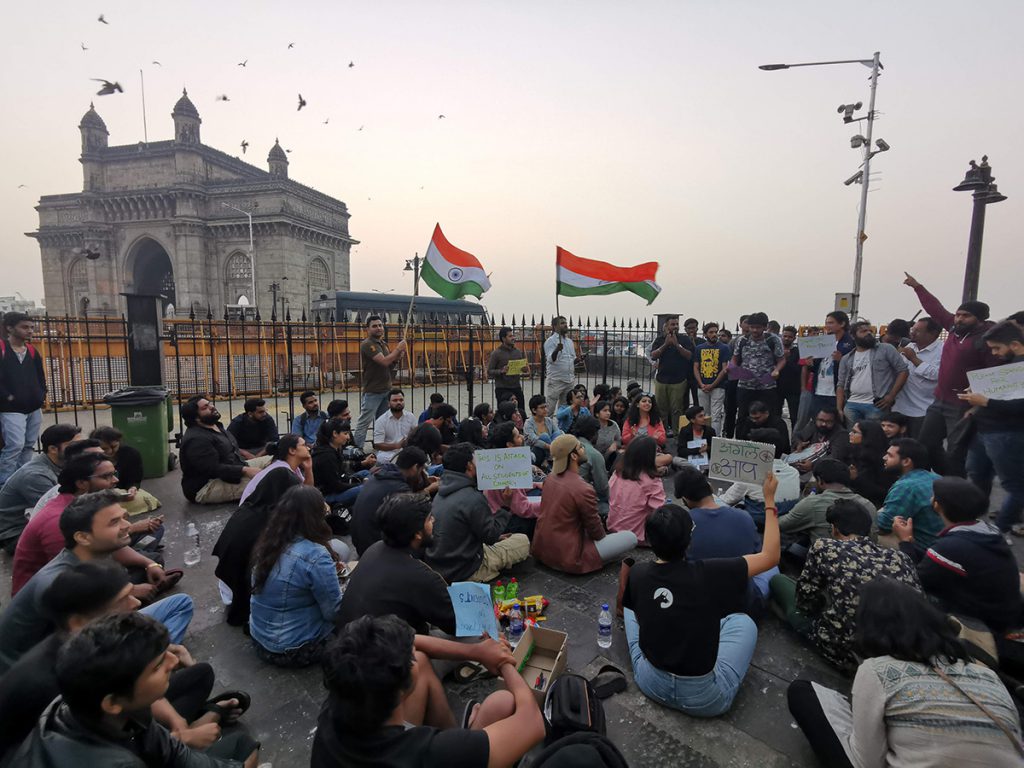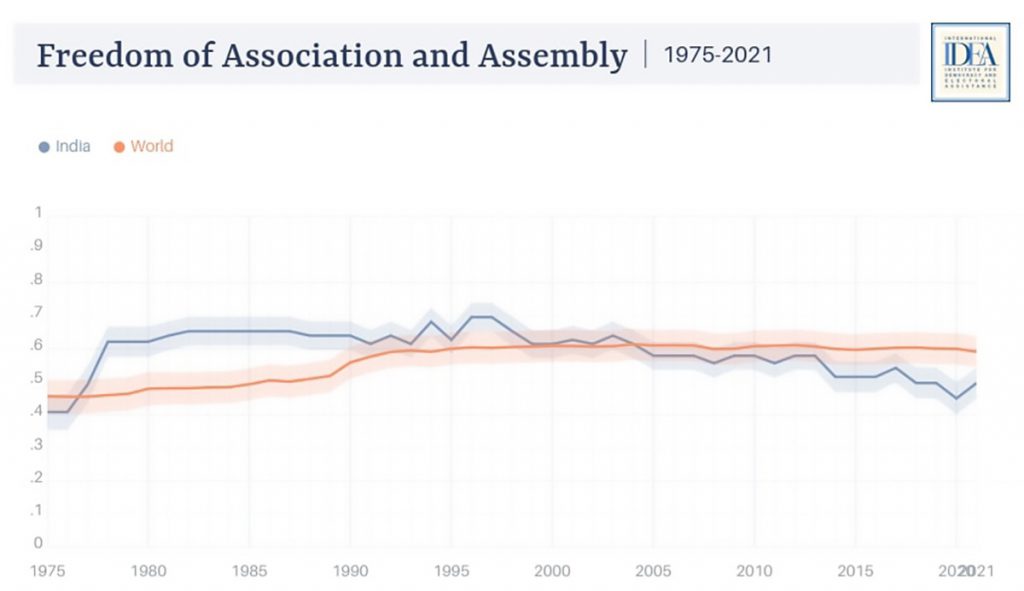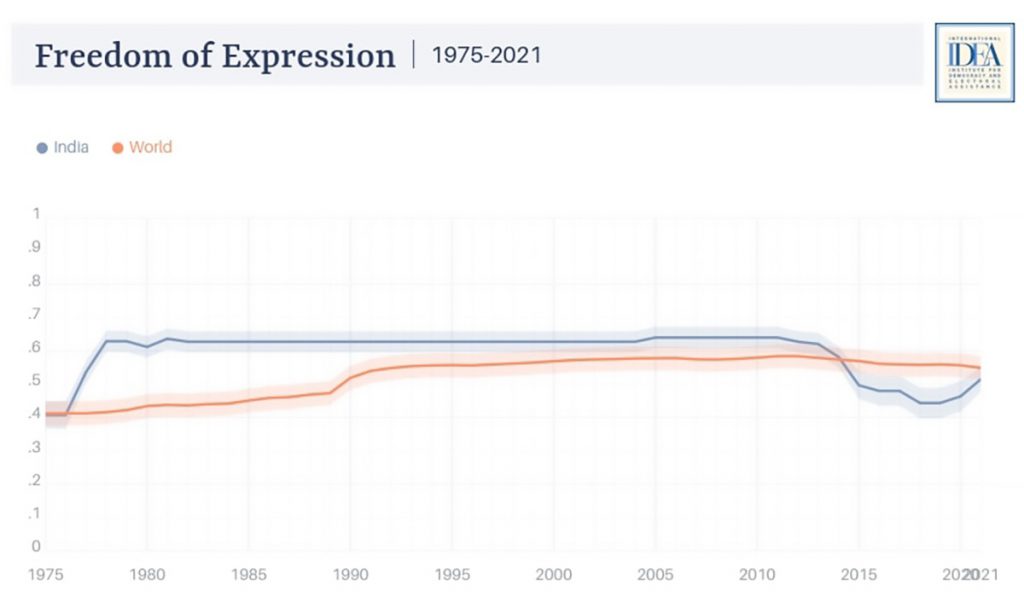The recent electoral victory of the Indian National Congress party in the southern state of Karnataka is a step towards the reversal of India's democratic backsliding, writes Tejendra Pratap Gautam
In Karnataka's recent state election, the Indian National Congress (INC) showed its political strength by defeating the ruling Bharatiya Janta Party (BJP). The Legislative Assembly election result was declared on 13 May 2023. Support from Karnataka's Muslim community, which comprises 12% of the population, was key to INC's victory.
This is a victory for the people. It represents a counter-narrative against the BJP's hate politics in national political discourse. A defeat for the BJP in this crucial election indicates a tentative reversal of India's recent democratic backsliding. It also gives a morale boost to the INC as it campaigns for next year's national election.
The INC's victory in Karnataka is a victory for the people, and a counter-narrative against hate politics in national discourse
Moreover, this election victory strengthens the secular fibre of India's democracy, which BJP's hate politics have long sought to erode. A continuing decline in freedom of expression and the proliferation of hate politics have fuelled India’s democratic backsliding under Prime Minister Narendra Modi.
Democratic backsliding is the erosion of a democratic country's democratic values, and the emergence of authoritarian symptoms. Between 2016 and 2020, several countries have lurched towards authoritarianism, and India is no exception. India is well known as the world's biggest democracy. But under Modi's regime, it has experienced significant democratic backsliding.
A Swedish think tank, the International Institute for Democracy and Electoral Assistance (International IDEA), in its Global State of Democracy (GSoD) Report 2022, categorised India as a backsliding democracy and a moderate decliner. Since Modi came into power in 2014, the BJP has used hate politics to propagate violence against Dalits, Muslims, and Other Backward Classes (OBC).

2020 saw anti-Citizenship Amendment Act (CAA) and National Register of Citizens (NRC) protests in Delhi and Uttar Pradesh. During these, the Indian government used brutal force against the student protestors at Jamia Milia Islamia University in Delhi and at Aligarh Muslim University in Aligarh, Uttar Pradesh. Police forces deployed tear gas and rubber bullets to silence the protestors.
This corroborates the International IDEA analysis, which indicates a drastic fall in freedom of association and assembly since 2014 in India. It also shows India's decline compared with the worldwide trend.

In BJP-governed states, Muslims who criticise government policies in public spaces are likely to have their homes bulldozed by the state authorities as a form of social humiliation. These states have normalised such 'bulldozer politics'. BJP-led state governments frequently perpetuate state violence against Muslims' freedom of expression. The result is that ethnic and religious minorities are afraid to express their discontent with government policies.
In Modi's India, dissent against government policies and mechanisms is met with ruthless punishment
Such policies include the revocation of two key Articles in the Indian Constitution, approved by the president on 9 August 2019. Article 370 gave special status to the state of Jammu and Kashmir. Meanwhile, Article 35A empowered the legislature to define who precisely was a 'permanent resident' and therefore entitled to (for example) purchase land, vote in elections, and access higher education and healthcare.

In Modi's India, as Amit Singh points out, dissent at unpopular government policies and mechanisms meets with ruthless punishment. This offers striking evidence of the wholesale erosion of India's democratic values.
In the years since 2019, media freedom has sunk to an unprecedented low. According to Reporters Without Borders (RSF), India currently ranks 161st in the 21st edition of the World Press Freedom Index. Oligarchs close to Modi control the major media houses. Continuing state violence against journalists shows that press freedom, a fourth pillar of democracy, is in crisis.
On 1 January, some Muslim students at Karnataka's Udupi College were denied entry to class because, against college rules, they were wearing the hijab. In the wake of this incident, Karnataka's ruling BJP brought its hate politics to bear.
The hijab vs uniform controversy is artificially engineered; concocted entirely by the state's right-wing ruling party. Matters escalated in February 2022 when the Karnataka government issued an order upholding the hijab ban. The order called for the banning of any clothes that 'disturb equality, integrity, and public order'. Udupi college students challenged the order in Karnataka's High Court, but the court upheld the ban.
The hijab controversy in Karnataka was an attempt at polarisation by the BJP that worked against them in the state election
The hijab controversy was an attempt by the BJP at stoking polarisation. But in the state election on 13 May, the opposition INC party won 135 seats out of 224. This is an astonishing victory for the Indian National Congress. Kaneez Fatima, INC's only female Muslim Member of the Legislative Assembly, declared that the INC-led government will now overrule the ban on wearing the hijab in educational institutions.
The INC-led mass march Bharat Jodo Yatra took place between September 2022 and January 2023. Its aim was to unite the country against the divisive politics of Modi's BJP. The march encouraged citizens to walk the 2,540 miles from Kanyakumari, at the southern tip of India, to the union territory of Jammu and Kashmir. Karnataka's people have shown the power of electoral democracy by upholding the Bharat Jodo Yatra mandate over the BJP's politics of hate. Karnataka's election result indicates that its people will no longer support a party whose politics endorse hate and communal violence.
The change of power in Karnataka's state election is an exceptional event in India's political history. It is a warning for political parties which, rather than focusing on real issues, resort to divisive hate politics in order to win votes. Moreover, it indicates that the people of India may no longer tolerate such politics, and this could revive the country's faith in secularism. These events in Karnataka may, therefore, be a first step towards a reversal of India's democratic backsliding.
No.29 in a thread on the 'illiberal wave' 🌊 sweeping world politics
Meticulous analysis. Good work!